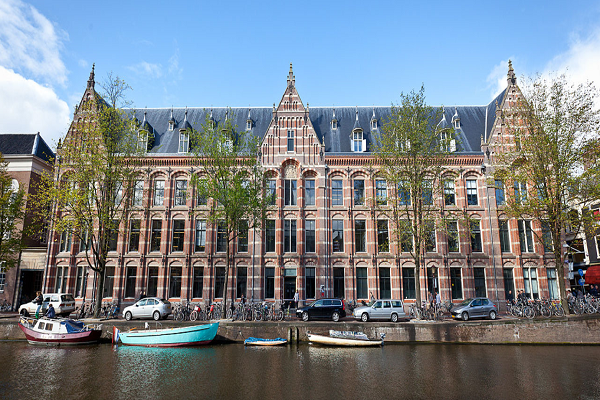University of Amsterdam: Honours module ‘Think Impact’ on equal opportunities beyond the university bubble
Guided by lecturers Jeroen Goedkoop and Nina Scheres, students in the Honours module ‘Think Impact: Bouwen aan kansengelijkheid’ immerse themselves in the different perspectives on equal opportunities in education. Each week, students are presented with guest lectures from well-known people and organisations in the field, to learn about how difficult it is for some high school students to find their way to university. Erik van Halewijn, UvA alumnus and one of the founders of the student organisation Diversity Talks, is involved in the course as a guest lecturer.
The rationale behind Think Impact, which was launched for the second time this semester, originated in the Diversity Talks project under the same name. The course focuses on the valorisation of knowledge and on bridging the gap between the scientific debate and the real-life situation in society.
In this way, students develop an understanding of how equality of opportunity takes place outside the theoretical framework and beyond the university ‘bubble’.
Turning theory into practice
Lecturers include Bas ter Weel (SEO Economisch Onderzoek), Abdelhamid Iddrissi (Studiezalen), Nadia Murady (Diversity Talks) and speakers from community organisations such as Cybersoek and various secondary schools. Abdelhamid Iddrissi even brought a group of high school students from Amsterdam Nieuw-West to get introduced to the university. They were given an introduction to bacteria, football robots and stars and were able to talk to Think Impact students and lecturers at the Science Park campus.
The students will also visit these community partner organisations in order to gain some hands-on experience. They reflect on how students themselves can play an active role in the opportunities and challenges that characterise these organisations.
An unusual course
This course is different from other courses – not only in terms of content, but in terms of the underlying learning objectives as well. The students themselves are responsible for much of the content of the module. First of all, the students, who are from a variety of degree programmes and disciplines, each bring in their own experiences. As an end product, they will develop practical modules which will enable fellow students to help prospective students with less access to higher education to make the transition to university. The students are given a lot of freedom, but they also have to investigate the role that students can take to tackle inequality of opportunity in education. In addition, the participants also have an influence on the design of the Think Impact course itself: for example, they actively participate in the organisation of a final meeting.
Although only a few lectures have taken place so far, the lecturers are already looking forward to the outcomes with optimism. “Education for and by students, on the cutting edge of university and society – that’s fantastic, isn’t it?” says Jeroen Goedkoop, lecturer and project leader at the Faculty of Science of the UvA. He begins each seminar with a personal anecdote to encourage the students. Nina Scheres, who is a lecturer in Biomedical Sciences as well as a mentor for first-year students, often sees that first-generation students encounter more difficulties than ‘regular’ students and highlights:
It is very important that other students become aware of this phenomenon. All participants are very engaged and come up with good questions and ideas, even late at night after a tough school week.
Nina Scheres, lecturer
Erik van Halewijn, a UvA alumnus who was elected UvA person of the year by Folia in 2019, is also involved as a guest lecturer in the course. He is working as an education programme manager at Echo, a centre of expertise for diversity policy, and also enjoys contributing to Think Impact: “This course has a lot of potential, it is driven by an innovative pedagogy in which you can also see the students flourish.”
Teamwork makes the dream work
The students have already succeeded in working together in their project groups. Their first ideas are slowly taking shape. Starting this week, they will visit ‘their’ community organisation and will be supported by a coach in the field. The effortless way in which the students and the high school students, from second to sixth grade, enthusiastically interacted is already promising.

